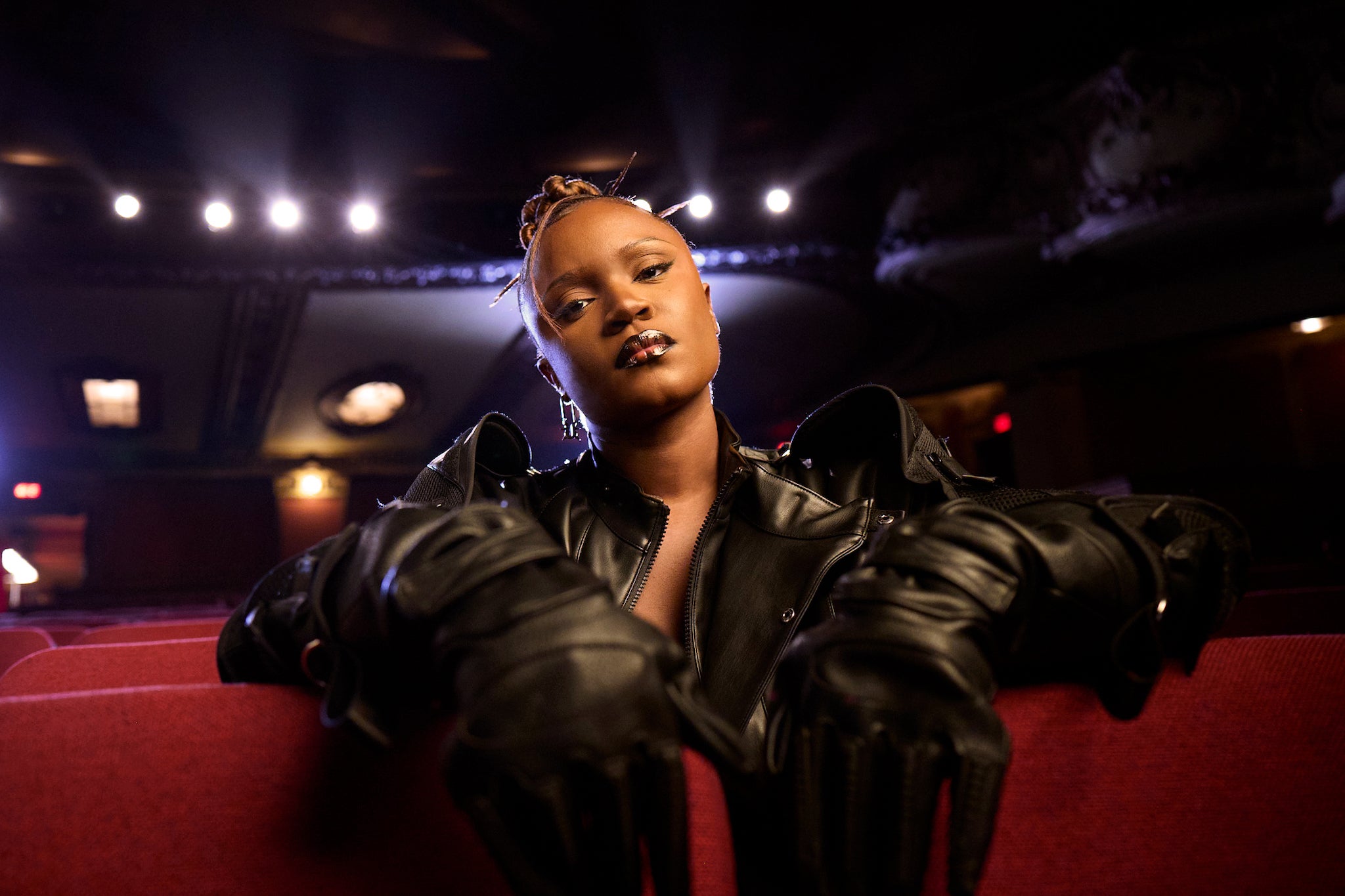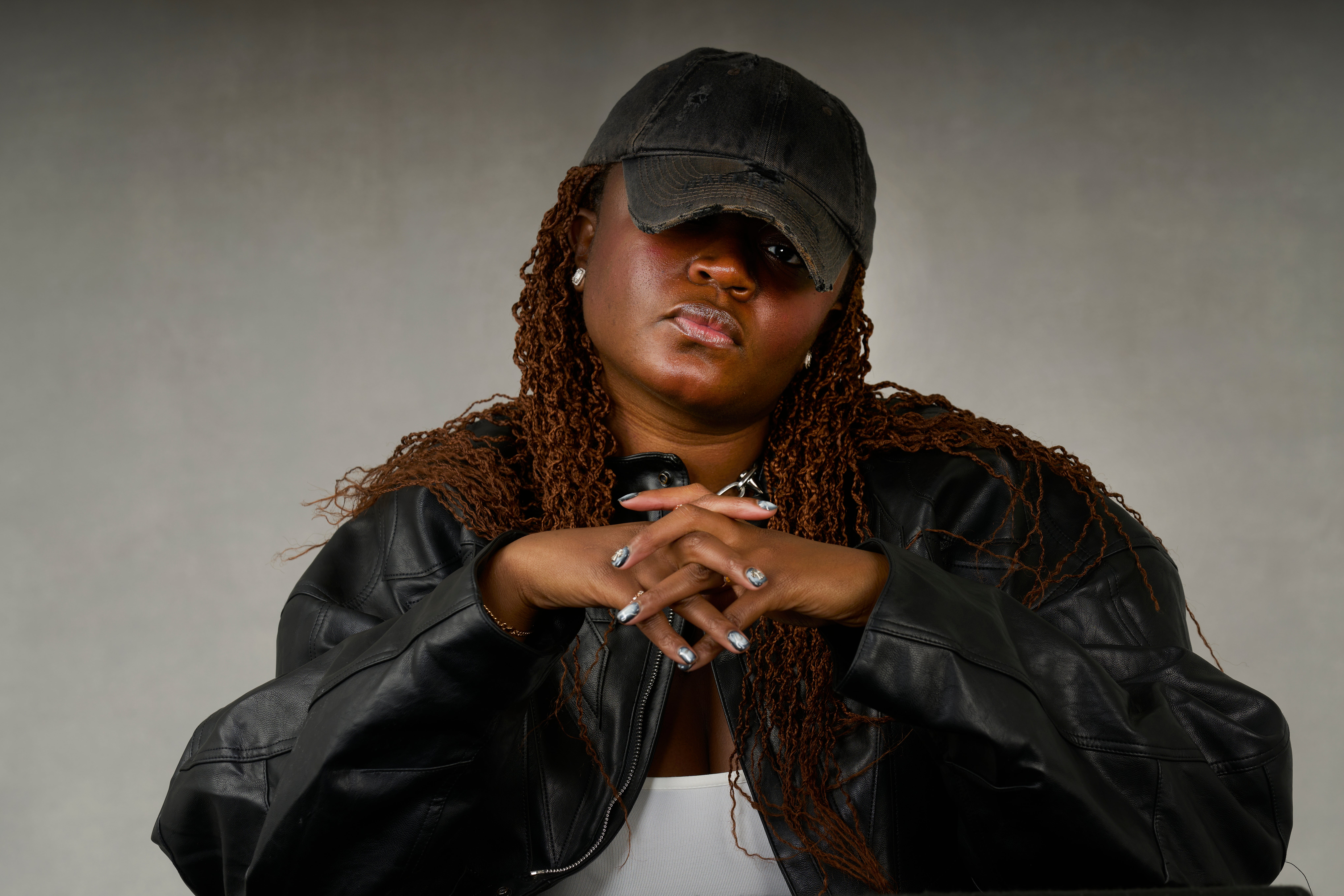Ghanian-American pop star Amaarae: ‘African artists are all lumped under one umbrella’
Her lustful, dazzling second album ‘Fountain Baby’ racked up 174 million global streams and catapulted the singer to critical acclaim and TikTok stardom. Now set to release a remix EP, she speaks to Ellie Muir about star signs, the hazards of singing in a ‘baby voice’, and one day securing a Grammy award


Within minutes of meeting Ghanaian-American singer-songwriter Amaarae, she is deciphering the meaning of my star sign. “Aries do be cute, but from my experience, when they’re done with you, they move on to someone new like the next week!” She clicks her manicured fingers in the air.
Astrology is all over the charts right now, nestled in the breezy pop of Kacey Musgraves’ latest record, SZA’s new single “Saturn”, and the “Saturn Returns Interlude” of Ariana Grande’s Eternal Sunshine. It is just one of many millennial-friendly topics on Amaarae’s pop maximalist second album Fountain Baby.
Released last summer, the record amassed over 174 million global streams and went on to appear on several “Best of 2023” round-ups. Its success saw the 29-year-old (nee Ama Serwah Genfi) transition from a regional alté act to an international star, serving up avant-garde pop comprising crystalline synths, percussive afrobeats and throbbing melodies – an ever-shifting landscape pinned beneath her sugar-spun soprano vocals.
The album revels in excess and debauchery. On the funk-inspired “Angels in Tibet”, Genfi riffs on wetness; she proclaims her desire for cunnilingus in the morning, wanting to “f*** a puddle” and “give that kitty a cuddle”. The song, an excellent example of Genfi’s shapeshifting prowess, receives its own remix EP this week, on which Grammy-winning rapper and producer Kaytranada and fellow TikTok sensation Aliyah’s Interlude feature.
Genfi is not a bashful lyricist. Against the syncopated rhythms of “Co-Star”, Genfi bulldozes through the zodiac. “Them Libra b****es horrible, baby, just tell me,” she coos. “Crazy like Aquarius/ Text me when you’re serious/ Tease me like a Taurus.” On the pulsating track “Princess Going Digital”, she pleads with the listener: “Take me off the streets” – “streets” being the internet’s lingua franca for singledom.
Did her pleas work? “The update is that I’m back on the streets,” she sighs, sinking into the sofa, sipping a mug of green tea through a straw. Right now, she’s learning to embrace her own company. “I’m singing [‘Princess Going Digital’] now with more of an awareness that I don’t mind spending some time by myself and alone and learning myself a little bit, before somebody comes and snatches me up,” she laughs. Geminis, though, stay away.
Hearing Genfi speak is somewhat surprising; her natural growl sits much lower on the register than her singing voice, which she proudly refers to as “baby voice”. It takes work to maintain: a strict regimen of manuka honey hot drinks, lymphatic massages, and vocal mists. Alcohol, too, is kept to a bare minimum.
Her preference for sky-high pitches, she says, comes from her love of Anthony Kiedis (of Red Hot Chili Peppers) and the Atlanta rapper Young Thug. It’s through her angelic timbre that Genfi is able to convey a vulnerability and a sensitivity that her lyrics can’t. “In my everyday life, [vulnerability] is not really an emotion I make use of, so my voice allows me to express it,” she says.
Last June, the success of Fountain Baby saw Genfi invited to perform a Tiny Desk concert as part of the ongoing NPR video series. Filmed in the snug corner of the publication’s Washington DC offices, Tiny Desk has become a major milestone for any artist. Taylor Swift’s Tiny Desk, for example, has had 20 million views. For Genfi, it presented a certain challenge: the acoustic set-up stripped her of her usual heavy synths and effects.

Genfi recoils into the sofa and sucks the air between her teeth when I bring it up. “I hated that performance.” She shakes her head. “I choked up. I had done my vocal exercises. I was warmed up, ready to go, and then I got there and then I just got nervous.” Genfi had an 11-strong band behind her as she sang coolly into a microphone propped up on a stack of books. “Every time I watch my Tiny Desk, I’m like, bro, the band sounds amazing and I just hate how I sound.” For what it’s worth, I disagree.
The Tiny Desk gig, Fountain Baby’s accolades, and her current back-to-back tour schedule – all signs point towards Genfi becoming a Grammy hopeful. But, as an artist from Ghana, she’s uncomfortable with the way that African artists get lumped into the ambiguous “Best World Album” category. “I think that if we’re going to discuss Africa, we [shouldn’t] place us all under the same umbrella as either afrobeats or afropop,” she explains. “There’s afro R&B, African street rap – so many different things. That’s my issue – it’s not all being properly categorised. We’re all being lumped into this one umbrella.”
Fountain Baby is, glaringly, a pop album. “When I think about Madonna, [Lady] Gaga, Janet Jackson, Britney and Gwen Stefani, I think my album has the same fundamental pop cues that those albums have had,” says Genfi. If she were to be nominated, she hopes it would be in a category her music resonates with – regardless of her background. Bagging Record of the Year, she adds, “would be fire”.
Genfi is uninterested in being boxed into a genre – or a sexuality. Since the start of her career, her lyrics have remained decidedly cryptic about the gender of her love interests. “The pronouns have gone from he, she, they, them. I’ve never been a stickler for [the idea that] it strictly has to be a ‘he’ or strictly has to be a ‘she’,” she says. “[The late R&B singer-songwriter] Luther Vandross said this very aptly – that he made music for the world, and it wasn’t about who he was speaking to or about. He’s speaking about the love, the emotion of love in the context of love. And I think that that’s where my mindset is at.”
Besides, she adds, it’s fun to gender-bend sexually provocative lyrics – the kind that are traditionally delivered by cocky masculine voices. “If you’re listening to the music and you’re hearing this baby girl’s voice and calling girls b****es, it’s like, ‘What?’” She crumples her face into a frown. “But then the girls love it, you know!” To Genfi, that’s all that matters.
The remix EP of ‘Angels in Tibet’ will be out on 12 April via Interscope
Join our commenting forum
Join thought-provoking conversations, follow other Independent readers and see their replies
Comments
Bookmark popover
Removed from bookmarks